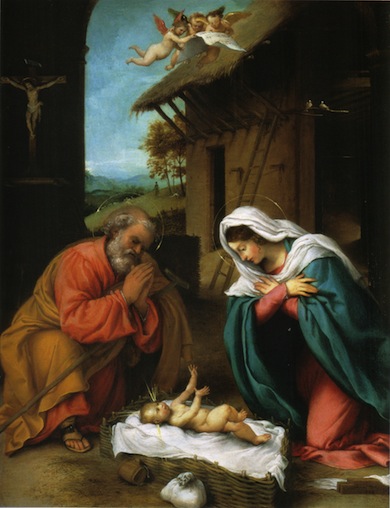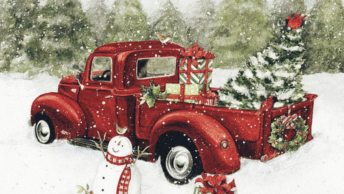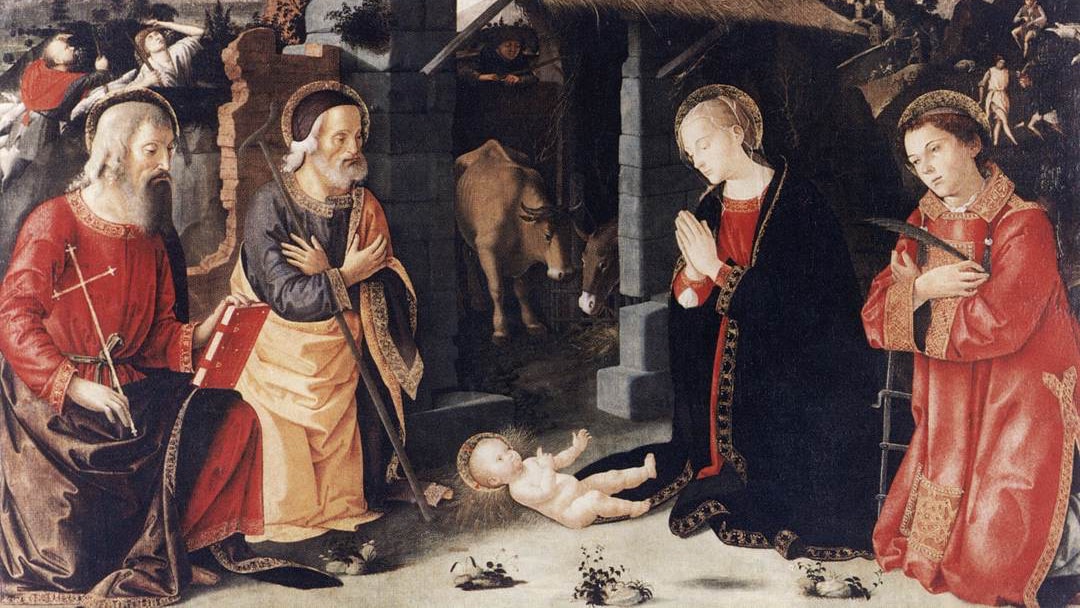
During these days, these holy days of Christmas time, a question has been in my mind, a question to which we all know the answer, but asking it causes us to focus our thoughts amidst all of the distractions of this holiday season.
The question I am putting to us is this: Does God long to belong?
The reality behind all of the images of these Christmas days is that of God coming to us in order to belong. God comes to us in love, an inviting love that calls us to belong to Him. Philosophers and theologians speak in abstract language using rather dry and remote mental concepts. The images of these Christmas days are very warm, very human, images that reach our hearts, touching them with the language of love.
We began with John the Baptist calling us to prepare, to set aside all of our busy-ness and concerns of this world and prepare for what God is going to do for us. You see, it’s not about what we are doing for God, important as that is. The real thing that’s happening is that God is coming to us, offering Himself to us in His only-begotten Son. It’s all about God seeking us out; God coming to us in love.
Then there is Mary six months pregnant traveling some distance to be with her cousin Elizabeth. Artists have painted masterpieces about the Visitation. In that event there was a mysterious meeting of the Christ child and John the Baptist, both of them still in the wombs of their mothers. God the Son comes to John the Baptist even before they are born! John the Baptist leaps in his mother’s womb. What an extraordinary reaching out that was.
Then God, having taken on human flesh in Mary’s womb, is born among us. Amazing events surround that event. Angels from on high descend to our earth. Lowly shepherds living near Bethlehem, not the powerful elite living in Jerusalem, are the first to encounter the Christ child. Heaven comes to earth in a most unexpected way and place. God is reaching out to humans in an extraordinary way, far beyond any of our human expectations.
Love does that. Love is driven to seek union. God’s love, God’s longing for belonging, is infinitely beyond anything we might imagine. If the events surrounding the birth of Christ seem to be unreal, it is because they are. They are totally beyond anything the human mind understands to be real.
The central image now comes into focus. It is the image of a baby being held in his mother’s arms while Joseph, their protector, stands near. What deeper belonging could there be?
Is there anything that speaks to us of belonging that is greater than this picture, a picture of a reality far above and beyond anything that we can rationalize with our minds? What could possibly be more a more powerful statement of God’s longing to belong than this? The bond of intimacy between a mother and her child is something that is clearly understood in any culture at any time anywhere in the world. No belonging is deeper or stronger than this.
All that we have just looked at is only the beginning. God’s self-expression of Himself to us, having come to us in the birth of His Son, goes on to cause His Son to enter into and fully engage our world and that dark forces that roam throughout our world. And how does Jesus do that? He calls twelve simple men to draw near to Him and living in a belonging, a bonded community, of disciples. Our Messiah accomplished His mission through belonging.
Isn’t that what our Church is all about – calling us to belong, calling us to bring others into our family of faith? Isn’t that what our parish is all about – bring us together around God’s family table, the altar on which Jesus Christ offers Himself to us here in our family room, our parish church? He comes to us to belong to us in Holy Communion, a union with God like no other.
It’s important for us, I think, to pay attention to these images and the big picture of these Christmas Holy Days. It’s no secret that what it means to be a family is undergoing a redefinition right now in our culture. No longer is the term “family” applied strictly to a household with mom, dad and the children all living together in the same home at the same time. As a matter of fact what is known as the nuclear family, or traditional family, is now in the minority. We have now various arrangements found in single parent families, in families in which the parents are of the same gender, and in families in which one parent is simply living with a boyfriend or a girlfriend.
So how can we model ourselves after the Holy Family? After all, we are not the extraordinary people found in today’s readings, living among the extraordinary events in which they lived. How does their model apply to us? The answer, I think, is to recognize that they lived fully dedicated to their faith. They lived out their religious practices and then went far beyond. They lived in wonder, in the wondrous recognition of all of the comings of God to them and responded by always seeking out God, by always living in the wonder of His presence.
It the cultural context in which we find ourselves today our Church bids us give attention to the Holy Family, asking us in that context to examine what is wholesome and holistic in our families. Our response is not merely optional. Our response is necessary. Do we reject our religious heritage outright, claiming that it is now irrelevant, or do we take into ourselves the wisdom that comes to us from our religious tradition and apply it afresh to the family living situations in which we find ourselves?
Much needs to be done to build up and buttress our present day families. Indeed, we find a number of social movements and organizations appearing on the scene in the last few decades that are designed to do just that.
So today I would like to focus our attention on the role our parents and aged grandparents can play in our present day households and family arrangements. Think for a moment now on the memories being carried in the minds and hearts of our aged parents and grandparents. What was life like for them in their families when they were young? What was America like for them those many decades ago? What did it mean to be to be a Christian or to be a Catholic? What did their religious heritage mean to them? What did it give to them? How did it shape and form their characters and their souls? There is a huge and rich mother lode of wisdom and insight contained in them, one that should be shared with us all, one that should certainly be shared with their grandchildren and even their great-grandchildren.
Granted that we live in a society that separates Church and State, does that mean we should be living in a society in which religion plays no part? And granted all of that, what are we doing within our own families, in our own households, however they are constituted, to transmit the wisdom of our elders to our children and their grandchildren?
A holistic and holy family is integrated, not fractured; other-centered, not self-centered; lives in forgiveness, affirms the uniqueness of each of its members; builds up instead of tears down; is mindful of God and not neglectful of His Presence and love.
The thoughts of St. Paul we heard read to us a few minutes ago, writing to the Colossians (3:12-17) two-thousand years ago, apply to us today just as urgently as they did back then – perhaps more so.
Put on then, as God’s chosen ones, holy and beloved, heartfelt compassion, kindness, humility, gentleness, and patience, bearing with one another and forgiving one another, if one has a grievance against another; as the Lord has forgiven you, so must you also do.
And over all these put on love, that is, the bond of perfection.
And let the peace of Christ control your hearts, the peace into which you were also called in one body. And be thankful.
Let the word of Christ dwell in you richly, as in all wisdom you teach and admonish one another, singing psalms, hymns, and spiritual songs with gratitude in your hearts to God.
And whatever you do, in word or in deed, do everything in the name of the Lord Jesus, giving thanks to God the Father through him.
May you live with Christ in a happy and holy family. There He longs to belong to you.








